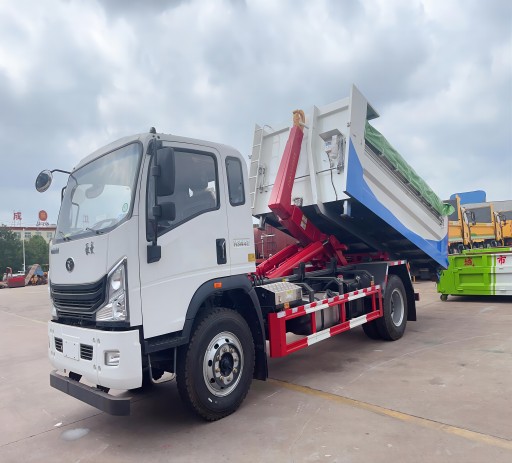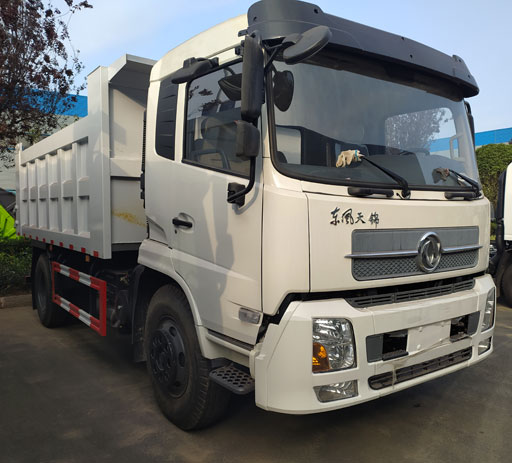Essential Vacuum Truck Supplies: Your Ultimate Guide

Vacuum trucks are indispensable for a variety of industries, from construction and environmental services to municipal waste management. Having the right vacuum truck supplies ensures that your operations run smoothly and efficiently. In this article, we will explore the essential supplies you need, practical tips for their use, and much more.
Understanding Vacuum Trucks
Before diving into the supplies needed for vacuum trucks, it’s crucial to understand what these vehicles do and their components.
What is a Vacuum Truck?
A vacuum truck is a specialized vehicle designed for transporting liquids, sludges, or solids through suction. They often serve multiple industries, including:
- Waste Management
- Construction
- Oil and Gas
- Municipal Services
Key Components of a Vacuum Truck
Typically, a vacuum truck consists of:
- Vacuum Pump
- Tank
- Hoses and Accessories
- Controls and Manifold
Essential Vacuum Truck Supplies
Having the right supplies is critical for efficient operations. Below are the essential vacuum truck supplies you should consider.
1. Vacuum Hoses

Vacuum hoses are the lifeblood of a vacuum truck. They connect the pump to the tank and are available in various diameters and lengths.
Types of Vacuum Hoses
- Rubber Hoses: Durable and flexible, excellent for many applications.
- Polyurethane Hoses: Lightweight and resistant to abrasion.
- Metal Hoses: Ideal for high-temperature applications.
Tips for Choosing the Right Hose
- Assess the material being suctioned.
- Consider the hose diameter for optimal flow.
- Ensure compatibility with your vacuum pump.
2. Vacuum Pumps
The heart of a vacuum truck is its pump, responsible for creating the suction needed to draw in materials.
Popular Types of Vacuum Pumps
- Positive Displacement Pumps: Suitable for thicker materials.
- Rotary Vane Pumps: Highly efficient in creating strong vacuum pressure.
- Liquid Ring Pumps: Good for wet applications.
Maintenance Tips for Vacuum Pumps
- Regularly check oil levels and quality.
- Inspect for leaks and replace seals as necessary.
- Clean the pump frequently to avoid clogs.
3. Tanks
The tank is where the collected materials are stored. Tanks come in various sizes based on the vacuum truck model.
Material Options for Tanks
- Steel Tanks: Durable and rust-resistant.
- Aluminum Tanks: Lightweight and easy to handle.
- Polyethylene Tanks: Resistant to chemicals.
Considerations for Tank Size
Choose a tank size based on:
- The volume of materials typically collected.
- The types of materials being stored.
- Local regulations regarding waste transportation.
4. Filters
Filters play a critical role in protecting the vacuum pump from debris and contaminants.
Types of Filters
- Air Filters: Removes particulates from the air before it enters the pump.
- Fluid Filters: Protects the vacuum system from fluid contaminants.
Maintaining Filters
- Inspect filters regularly for wear and tear.
- Replace filters as per manufacturer guidelines.
- Use high-quality filters to enhance performance.
5. Accessories
Accessories enhance the functionality of your vacuum truck. Some vital accessories include:

Common Vacuum Truck Accessories
- Suction Flanges: Used for coupling hoses to tanks.
- Nozzles: Different nozzles help to manage various types of materials.
- Adapters: Ensure compatibility with different equipment.
Practical Examples of Vacuum Truck Applications
Vacuum trucks are versatile and utilized in numerous settings. Below are practical examples of their application.
1. Environmental Cleanup
Vacuum trucks are essential for cleaning up hazardous spills or contaminated sites. They efficiently remove waste while adhering to safety regulations.
2. Sewer and Drain Cleaning
In municipal services, vacuum trucks clear out clogged sewers and catch basins to prevent flooding and related issues.
3. Construction Sites
Construction companies utilize vacuum trucks to manage debris and excavated materials, allowing for a safer work environment.
Choosing the Right Supplier for Vacuum Truck Supplies
Choosing the right supplier for vacuum truck supplies can significantly impact your operations. Here’s what to look for:
1. Quality of Supplies
Ensure that the supplier offers high-quality products. Research brands and read reviews.
2. Range of Products
A supplier that offers a wide range of vacuum truck supplies allows you to simplify your procurement process.
3. Customer Support
Excellent customer support is crucial for resolving issues quickly. Look for suppliers that offer responsive service.
Common Challenges and Solutions in Vacuum Truck Operations
Despite their benefits, vacuum trucks present challenges. Below are a few common issues and solutions.
Challenge: Clogs in Hoses
Solution:
Regularly inspect hoses for blockages and use appropriate cleaning methods to keep them clear.
Challenge: Pump Overheating
Solution:
Make sure to maintain the correct fluid levels and allow pumps to cool between uses.
Challenge: Regulatory Compliance
Solution:

Stay updated on local regulations regarding waste disposal and ensure procedures are followed meticulously.
Maintaining Your Vacuum Truck
Regular maintenance of your vacuum truck is critical for longevity and optimal performance. Here are some tips:
1. Regular Inspections
Conduct thorough inspections of all components, including hoses, pumps, and tanks.
2. Scheduled Servicing
Adhere to manufacturer-recommended servicing schedules to keep your vacuum truck in top condition.
3. Document Maintenance
Keep records of all maintenance work to track performance and identify recurring issues.
FAQ Section
1. What types of materials can vacuum trucks transport?
Vacuum trucks can transport liquids, sludges, or solids, including waste, chemicals, and debris.
2. How often should I perform maintenance on my vacuum truck?
Maintenance schedules vary, but regular inspections at least once a month are recommended, along with servicing according to manufacturer guidelines.
3. What is the average lifespan of a vacuum truck?
The average lifespan can range from 10 to 25 years, depending on usage and maintenance practices.
4. How do I choose the right vacuum truck supply supplier?
Look for suppliers that offer high-quality products, a wide range of supplies, and excellent customer support.
5. Are there specific safety regulations for vacuum truck operation?
Yes, there are local, state, and federal regulations regarding waste disposal, which must be followed to ensure safety and compliance.
